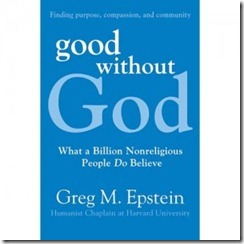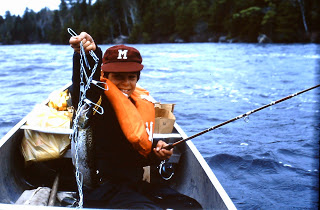 |
| “A hunter attacking a brown bear.” (Photo credit: Wikipedia) |
I often feel frustrated with human kind, sometimes even ashamed of it. Because we hold on so tightly to outdated social concepts, I fear that future generations will regard us as relative barbarians. We are ever so slowly emerging from our primitive state, but things are still pretty screwed up.
What am I talking about? I’ll get to that in a minute. But first I want to present a list of issues that, although contentious, are not all screwed up. These debates have no clear answers, and never will. Wise people will always disagree about where, on the continuum of possible choices, we should find ourselves. For example:
1. Taxing and spending – what role should government play in providing services and supporting the less fortunate members of society? On one extreme are pure socialist policies. On the other extreme are pure market/capitalism policies. Where we ought to find ourselves on this continuum will forever be a matter of reasoned debate.
2. The balance between privacy and security – how much privacy should we be willing to give up in order to protect ourselves? Reasonable people will always present arguments that move us back and forth on the continuum between a police state and a completely open and vulnerable state.
3. What is a healthy balance between in-group loyalty (patriotism) and world citizenship? How can we embrace our cultural differences without alienating and eventually making war with others?
4. The balance between environmentalism and short term economic impact. These two are not always mutually exclusive, but they often are. We’ll continue to have healthy debates about the rate at which we consume our natural resources and pollute our planet in order to maintain a standard of living. The answer is somewhere in the middle.
 |
| Marijuana plant. (Photo credit: Wikipedia) |
5. Drug legalization – would we be better off legalizing all drugs, some drugs, or should we double down on the so-called war on drugs? I suppose at some point this could become a completely resolved issue either way, but I more suspect that we’ll slide around on this continuum for the foreseeable future.
6. Should euthanasia be legal? If so, when and with what safeguards? Again, we may completely resolve this issue at some point, but in the meantime this will be an opportunity for reasoned debate between people who hold different positions. However, I would not consider it a reasoned debate if one group of people attempts to impose their particular religious justifications on another group of people regarding end-of-life options.
7. There are many similar, debatable issues such as how individuals are allowed to protect themselves (today’s gun rights debate), the pros and cons of employee unions, pornography and prostitution, etc.
In my mind, the above matters are complex, and will remain fluid as conditions and attitudes change. I find it intellectually stimulating to think about and discuss the above topics.
Below is a list of issues that, in my mind, require no more debate. The fact that we still have not settled them is evidence that the world is indeed screwed up. I have every confidence that a more enlightened, future society will look back on these debates in much the way that we look back on debates about slavery, using leeches to cure illnesses, and whether or not the earth is the center of the universe. In short, these are no-brainers.
1. Gay, or LGBT, rights. A certain percentage of people are born with or develop sexual orientations that are different from the majority. If the resulting acts occur between consenting adults, they are not unnatural, only unusual (maybe 2% – 5% or so). If your reason for being discriminatory has to do with your religious doctrine, that doesn’t excuse you. In addition to homosexuality, there are many other practices that the Bible forbids. These include eating pork, cutting your hair, and women speaking in church. Most religious people ignore these rules; why not ignore the Bible verses against homosexuality as well? If the reason that you discriminate against homosexuals is that you find mental images of homosexual sex acts to be revolting, as I admit I sometimes do, get over it. It’s your problem, not theirs.
2. The electoral college. This is a vestige from our early democracy, when the concept of one person – one vote was just a bit too radical to embrace. Let’s change this now. It’s an embarrassment.
 |
| A bible from 1859. (Photo credit: Wikipedia) |
3. Literal interpretation of ancient, religious documents. For example, there are members of Congress, some who sit on the House Science, Space, and Technology Committee, who believe that the earth is less than 10,000 years old. This belief is shared by approximately 46% of Americans. Really, in this day and age?
4. Separation of church and state. Our generally religious founding fathers went out of their way to unambiguously establish a secular government. Yet, more than 200 years later we are still arguing whether or not we are a Christian nation. We may be a nation predominantly made up of Christians, but ours is clearly a nonreligious government. Clearly. If you disagree, read the Constitution. Centuries after our secular government was founded, over 34% of Americans would still like America to become a Christian theocracy.
5. Sexism. In large swaths of the world women are still considered second-class citizens or virtual slaves. The worst of this occurs in Muslim theocracies. To learn more about this read the books by Ayaan Hirsi Ali.
6. Birth control. The Catholic Church in particular, as well as other religious organizations, espouse the absurd and archaic belief that there is something morally wrong with the practice of birth control. I find the Catholic Church to be the immoral party in this debate. Their policy is contributing to the AIDS epidemic in sub-Saharan Africa, essentially killing thousands if not millions of people.
7. A true, universal healthcare system, and a medical/industrial complex that is geared toward patient well-being rather than corporate profit. Obama-care is only a small step in that direction. I don’t know how we’ll do it. Neither do I know how we’ll afford it. Frankly, I’m afraid our government bureaucracy will screw it up. But one day the quality of healthcare that a person receives in the United States will not depend on their pre-existing conditions, wealth, income, or employment status. Every other modern democracy has figured this out. We will one day as well, at which time we’ll find it hard to believe that we went without a proper healthcare system for so long.
 |
| (Photo credit: Wikipedia) |
8. Totalitarianism – there’s a lot less now than there used to be, but the remaining dictatorships on the planet may be difficult to flush out. Perhaps the most extreme example is North Korea. If you have HBO, please go watch this episode of Vice, on demand. It will blow your mind.
9. There are many more issues such as terrorism, racism, alternative energy, etc. which are clear-cut and should have broad agreement by now, but don’t.
I’m confident that if we don’t destroy ourselves, and if we don’t plunge into some sort of a dark age ruled by radical Islamic Mullahs, for example, that one day we will find general agreement on these no-brainer issues. I wish I could live long enough to see that, but I won’t.















